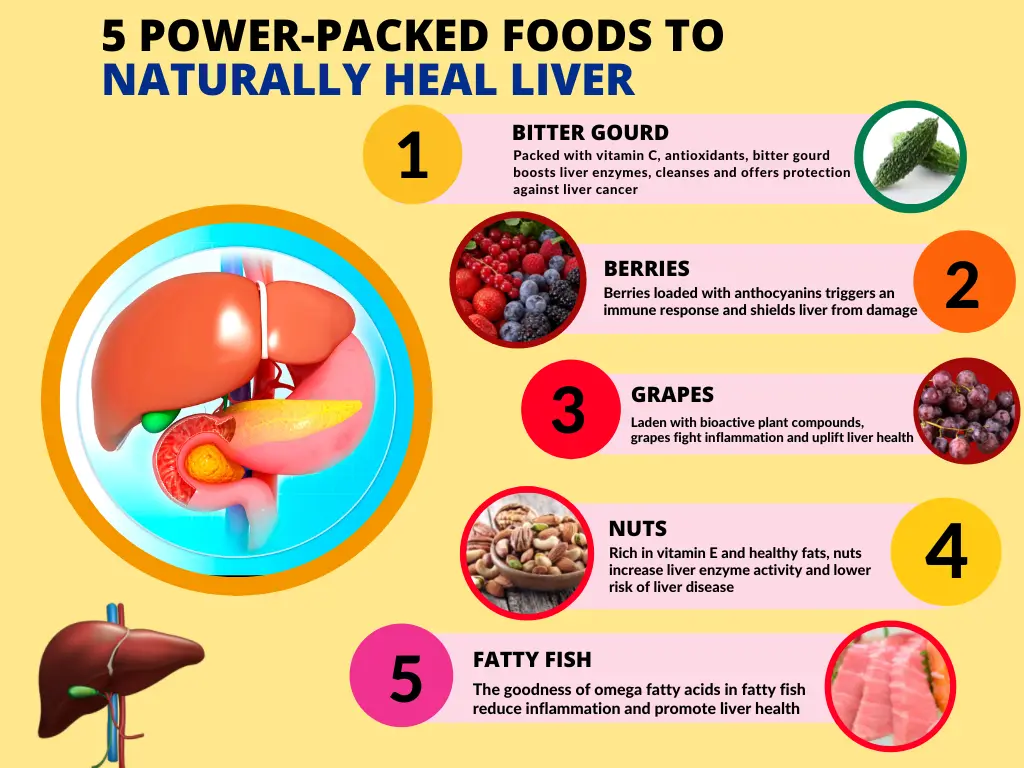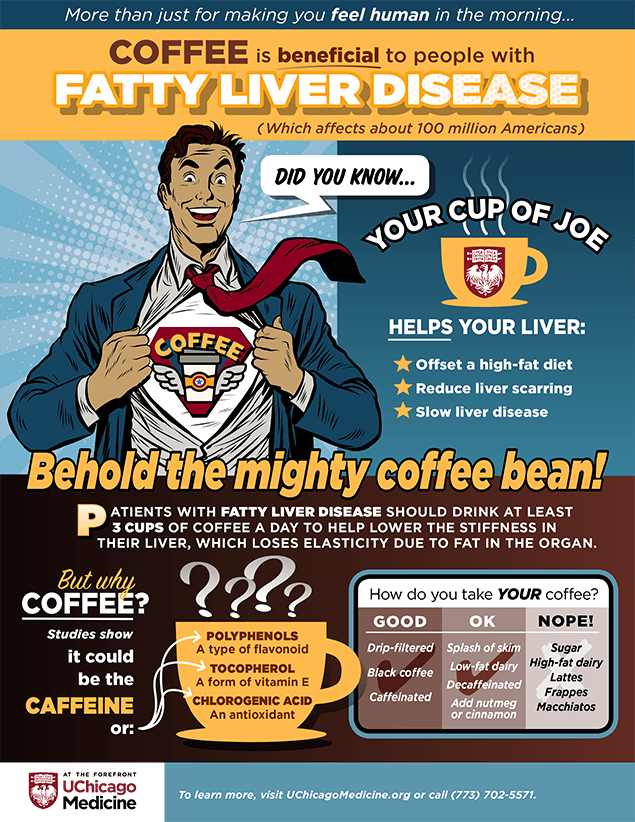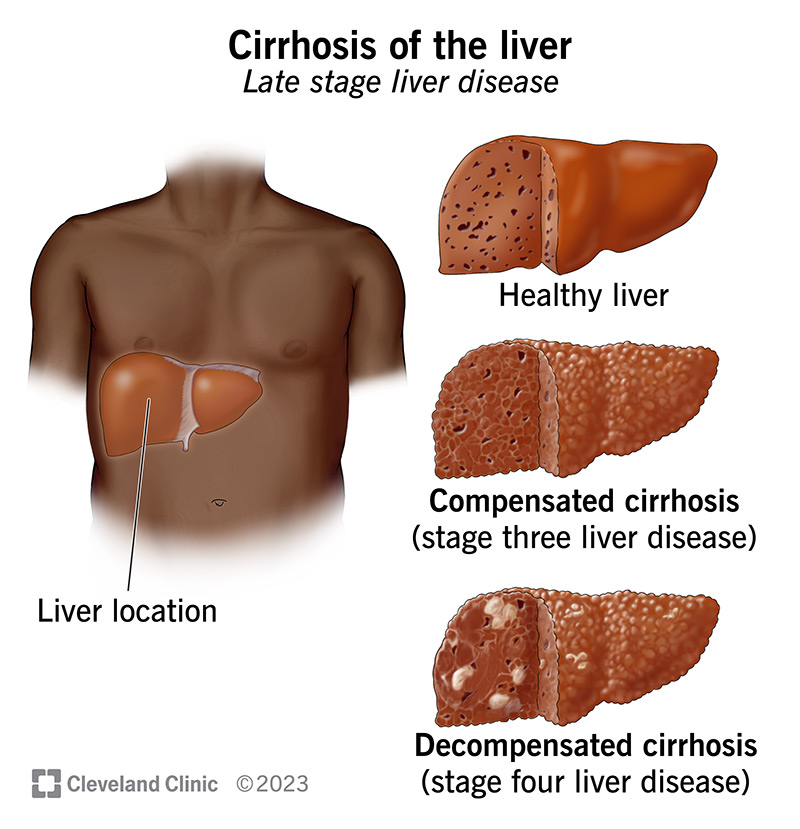Learn how to improve liver function with cirrhosis through diet, exercise, and herbal supplements.
Discover tips for managing stress and avoiding habits that worsen liver damage. Enhance your liver health today!
Introduction
In this article, we will discuss how you can improve your liver function with cirrhosis.
We will explore various methods and strategies that can be beneficial for your liver health.
You will learn about the importance of maintaining a healthy diet, incorporating exercise into your routine, and the potential benefits of certain herbs and supplements.
Additionally, we will provide tips on managing stress and avoiding habits that can worsen liver damage.
By the end of this article, you will have a better understanding of how to support your liver function with cirrhosis.
How Can I Improve My Liver Function With Cirrhosis?
Cirrhosis is a chronic condition that affects the liver, causing it to become scarred and hardened.
This condition can have a significant impact on the overall function of the liver, leading to various symptoms and complications.
However, there are several ways in which you can improve your liver function and manage the effects of cirrhosis.
In this article, we will discuss various strategies and lifestyle adjustments that can help you maintain optimal liver health.
Understanding Cirrhosis
What is cirrhosis?
Cirrhosis is a condition in which the liver becomes scarred and damaged over time.
It is often caused by long-term exposure to toxins such as alcohol or hepatitis C infection.
The scar tissue replaces healthy liver tissue, impairing the liver’s ability to function properly.
As a result, the liver may struggle to perform essential functions, such as filtering toxins from the blood, producing bile, and storing vitamins and minerals.
Causes of cirrhosis
There are several potential causes of cirrhosis, including chronic alcohol abuse, viral hepatitis (such as hepatitis B or C), non-alcoholic fatty liver disease (NAFLD), and autoimmune diseases.
In some cases, cirrhosis can also be caused by genetic disorders, certain medications, or prolonged exposure to environmental toxins.
Symptoms and complications of cirrhosis
Cirrhosis can lead to various symptoms and complications, which may include fatigue, jaundice (yellowing of the skin and eyes), fluid retention (edema), abdominal swelling (ascites), easy bruising or bleeding, mental confusion (hepatic encephalopathy), and increased sensitivity to medications.
It can also increase the risk of developing liver cancer.
Importance of Liver Function
Functions of the liver
The liver plays a crucial role in maintaining overall health and well-being. Some of its essential functions include:
- Detoxification: The liver filters toxins and harmful substances from the blood before circulating it back to the rest of the body.
- Metabolism: The liver metabolizes nutrients, drugs, and hormones to ensure the proper functioning of the body.
- Bile production: The liver produces bile, which aids in the digestion and absorption of fats.
- Blood clotting: The liver produces clotting factors that help prevent excessive bleeding.
- Storage: The liver stores essential vitamins, minerals, and glucose for future use.
Impact of cirrhosis on liver function
Cirrhosis can severely affect liver function, leading to the impairment of these essential processes.
As scar tissue replaces healthy liver cells, the liver’s ability to filter toxins, produce bile, and carry out other critical functions is compromised.
This can result in various symptoms, such as impaired digestion, increased toxin levels in the blood, and reduced nutrient absorption.
Treatment Approaches for Cirrhosis
Medical interventions for cirrhosis
Medical interventions for cirrhosis are aimed at managing symptoms, preventing complications, and slowing down the progression of liver damage.
These may include medications to reduce inflammation, diuretics to manage fluid retention, and medications to control complications such as hepatic encephalopathy or variceal bleeding.
In some cases, liver transplantation may be necessary for end-stage cirrhosis.
Lifestyle modifications for improved liver function
In addition to medical interventions, making certain lifestyle modifications can significantly improve liver function and minimize the effects of cirrhosis. These modifications include:
- Avoiding alcohol: Alcohol is highly toxic to the liver and can worsen liver damage in individuals with cirrhosis. It is essential to completely abstain from alcohol to prevent further harm.
- Maintaining a healthy weight: Obesity can contribute to fatty liver disease and exacerbate cirrhosis. Maintaining a healthy weight through a balanced diet and regular exercise can help improve liver function.
- Eating a nutritious diet: Consuming a diet rich in fruits, vegetables, lean proteins, and whole grains can support liver health. Certain foods, such as garlic, grapefruit, beetroot, and green tea, have been shown to have specific benefits for liver function.
- Limiting sodium intake: High sodium intake can contribute to fluid retention and worsen symptoms of cirrhosis. It is important to limit sodium intake and opt for low-sodium food options.
- Staying hydrated: Drinking an adequate amount of water is vital for maintaining optimal liver function. It helps flush out toxins from the body and ensures the proper hydration of liver cells.
:max_bytes(150000):strip_icc()/what-is-the-best-diet-for-cirrhosis-1760062-01-9dbb72c43c964fbf887e24c2d48fcb62.png)
This image is property of www.verywellhealth.com.
Role of Diet in Improving Liver Function
The best foods for liver health
A nutritious diet plays a crucial role in supporting liver health and improving liver function. Some of the best foods for liver health include the following:
- Leafy greens: spinach, kale, and other leafy greens are rich in antioxidants and fiber, which can help protect the liver from damage.
- Fatty fish: Fish such as salmon, sardines, and mackerel are high in omega-3 fatty acids, which have anti-inflammatory properties and can improve liver function.
- Berries: Blueberries, strawberries, and cranberries are rich in antioxidants that help reduce inflammation and oxidative stress on the liver.
- Citrus fruits: Oranges, lemons, and grapefruits are excellent sources of vitamin C and other antioxidants that support liver health.
- Nuts and seeds: Walnuts, almonds, chia seeds, and flaxseeds are rich in healthy fats and antioxidants that promote liver health.
Foods to avoid for cirrhosis patients
Certain foods can be detrimental to liver health and should be avoided or consumed in moderation. These include:
- Alcohol: Alcohol is the primary cause of cirrhosis and should be completely avoided to prevent further liver damage.
- Highly processed foods: Foods that are high in unhealthy fats, added sugars, and artificial additives can contribute to liver inflammation and fatty liver disease.
- Fried and greasy foods: These foods are often high in unhealthy fats and can contribute to fatty liver disease and inflammation.
- High-sodium foods: Excess sodium intake can worsen fluid retention and swelling in individuals with cirrhosis. Limiting sodium intake is crucial.
The importance of hydration
Staying adequately hydrated is essential for liver health.
Drinking enough water helps flush out toxins from the body and prevents dehydration.
Aim to drink at least 8 glasses of water per day and limit the consumption of sugary drinks and caffeine, as they can dehydrate the body.
Exercise and Physical Activity
Benefits of exercise for liver health
Regular exercise and physical activity offer numerous benefits for liver health, even for individuals with cirrhosis. Some of the benefits include:
- Improved insulin sensitivity: Exercise helps improve insulin sensitivity, which is essential for individuals with fatty liver disease or diabetes-related cirrhosis.
- Weight management: Regular exercise helps maintain a healthy weight or promote weight loss, which can reduce the severity of fatty liver disease and improve overall liver function.
- Reduced inflammation: Exercise has anti-inflammatory effects that can help reduce liver inflammation and improve liver function.
- Enhanced overall well-being: Regular physical activity can boost mood, reduce stress, and improve overall mental and emotional well-being.
Recommended exercises for cirrhosis patients
While exercise is beneficial for individuals with cirrhosis, it is essential to consult with a healthcare professional before starting any exercise regimen. Some recommended exercises for cirrhosis patients may include:
- Brisk walking: Walking at a moderate pace can improve cardiovascular health and overall fitness.
- Swimming or water aerobics: Exercising in water provides a low-impact workout that is gentle on the joints.
- Gentle stretching or yoga: Stretching exercises can improve flexibility and promote relaxation.
- Resistance training: Light strength training exercises can help build muscle mass and improve overall strength.
It is important to start slow and gradually increase the intensity and duration of exercise as tolerated.
Always listen to your body and seek medical guidance if you experience any discomfort or worsening of symptoms during exercise.

This image is property of relamshospital.com.
Avoiding Harmful Habits
Impact of alcohol on liver function
Alcohol is highly damaging to the liver, especially in individuals with cirrhosis.
It is essential to completely abstain from alcohol to prevent further liver damage and the progression of cirrhosis.
If you find it challenging to quit drinking on your own, consider seeking professional help and support from addiction specialists or support groups.
Smoking and its effect on cirrhosis
Smoking can also have detrimental effects on liver health, especially in individuals with cirrhosis.
Smoking is known to increase inflammation and oxidative stress in the body, which can further worsen liver damage.
Quitting smoking is highly recommended to improve liver function and overall health.
Seek professional help and utilize resources such as nicotine replacement therapy or support groups to aid in smoking cessation.
Natural Remedies and Herbal Supplements
Herbal remedies for liver health
Several herbal remedies have been traditionally used to promote liver health and support liver function.
While these remedies may offer some benefits, it is important to consult with a healthcare professional before starting any herbal supplements, especially if you have cirrhosis.
Some herbal remedies that have shown potential benefits for liver health include:
- Milk thistle: Milk thistle has been used for centuries to support liver health and protect against liver damage. It contains an active ingredient called silymarin, which has antioxidant and anti-inflammatory properties.
- Dandelion root: Dandelion root has diuretic properties and may help improve liver function by increasing urine production and promoting detoxification.
- Turmeric: Turmeric contains curcumin, a compound with potent anti-inflammatory and antioxidant properties. It may help reduce liver inflammation and improve liver function.
Benefits of Bhumy Amalaki powder
Bhumy Amalaki, also known as Phyllanthus niruri or stonebreaker, is an Ayurvedic herb commonly used for liver health.
It is believed to have hepatoprotective properties and may help promote liver regeneration, reduce liver inflammation, and prevent liver damage.
Bhumy Amalaki powder can be consumed as a supplement, but it is important to consult with a healthcare professional regarding its usage, dosage, and potential interactions with any medications.
Dosage and usage instructions
The appropriate dosage and usage instructions for herbal remedies, including Bhumy Amalaki powder, can vary depending on individual factors and specific health concerns.
It is important to consult with a qualified healthcare professional or an integrative medicine practitioner to determine the correct dosage and usage instructions for your specific needs.
They can provide personalized guidance and ensure the safe and effective use of herbal remedies alongside any prescribed medications.
This image is property of my.clevelandclinic.org.
Managing Medications and Supplements
Interaction between cirrhosis and medications
Cirrhosis can affect the way medications are processed and eliminated from the body, leading to potential drug interactions and an increased risk of medication-related complications.
It is essential to inform your healthcare provider about your cirrhosis diagnosis and any medications or supplements you are taking.
They can evaluate the potential interactions, adjust dosages, or recommend alternative medications if necessary.
Consulting with healthcare professionals
When managing cirrhosis and seeking ways to improve liver function, it is crucial to work closely with a healthcare professional.
They can provide expert guidance, monitor your condition, and ensure you receive appropriate medical interventions and support.
Regular communication with your healthcare team allows for timely adjustments to treatment plans and the identification of any potential complications or changes in liver function.
Regular Medical Monitoring and Check-ups
The importance of regular check-ups
Regular medical monitoring and check-ups are essential for individuals with cirrhosis to monitor liver function, manage symptoms, and prevent complications.
Your healthcare provider may recommend routine blood tests to assess liver function, imaging tests to evaluate the extent of liver damage, and other diagnostic procedures based on your specific needs.
Schedule and attend regular check-ups as advised by your healthcare provider to ensure your liver health is closely monitored.
Recommended tests and evaluations
Some of the tests and evaluations that may be recommended for individuals with cirrhosis include:
- Liver function tests: These blood tests measure levels of liver enzymes, bilirubin, albumin, and other markers of liver function.
- Imaging tests: Ultrasound, CT scan, or MRI may be used to assess the size, shape, and condition of the liver.
- Fibroscan or liver biopsy: These tests can provide information about the degree of liver scarring and the stage of cirrhosis.
Your healthcare provider will determine the most appropriate tests based on your individual circumstances and medical history.

This image is property of www.uchicagomedicine.org.
Supportive Care and Lifestyle Adjustments
Self-care techniques for cirrhosis patients
Self-care plays a crucial role in managing cirrhosis and promoting liver function. Some self-care techniques that can support liver health and overall well-being include:
- Getting enough rest: Ensuring an adequate amount of sleep and rest can help the body repair and rejuvenate, supporting liver function.
- Maintaining good hygiene: Practicing good hygiene, such as regularly washing hands and avoiding exposure to infectious diseases, can help prevent complications in individuals with cirrhosis.
- Managing stress: High levels of stress and anxiety can worsen liver function and overall health. Incorporating stress-management techniques such as meditation, deep breathing exercises, and engaging in activities you enjoy can help manage stress.
Managing stress and emotional well-being
Cirrhosis and its impact on liver function can have emotional and psychological effects on individuals.
It is important to prioritize emotional well-being and seek support when needed.
Talk to your healthcare provider or consider joining support groups or counseling sessions that can provide a safe space to discuss your concerns, fears, and emotions relating to cirrhosis.
Remember that you are not alone, and support is available to help you navigate the challenges and emotions that may arise.
The importance of Weight Management
Maintaining a healthy weight
Maintaining a healthy weight is crucial for individuals with cirrhosis, as obesity can worsen liver function and contribute to fatty liver disease.
It is important to adopt a balanced diet and engage in regular physical activity to achieve and maintain a healthy weight.
Consult with a healthcare professional or a registered dietitian to develop a personalized weight management plan that suits your specific needs and medical condition.
Effect of obesity on liver function
Obesity can increase the risk of developing fatty liver disease and worsen the severity of cirrhosis.
Excess body weight leads to the accumulation of fat in the liver, further impairing liver function and increasing the risk of complications.
By maintaining a healthy weight, you can reduce the strain on your liver and improve overall liver function.
Potential Surgical Interventions
Liver transplantation
Liver transplantation is considered the definitive treatment option for individuals with end-stage cirrhosis or liver failure.
The procedure involves replacing a diseased liver with a healthy liver from a deceased or living donor.
Liver transplantation can significantly improve liver function and quality of life.
However, the availability of suitable donor livers and eligibility criteria may limit access to transplantation for some individuals.
Other surgical options for cirrhosis
In addition to liver transplantation, there are other surgical interventions that may be considered for specific complications of cirrhosis.
These may include procedures to treat variceal bleeding, drain excess fluid from the abdomen (paracentesis), or relieve pressure in the portal vein (transjugular intrahepatic portosystemic shunt).
The suitability and necessity of these procedures depend on individual circumstances and should be discussed with a healthcare professional.
Awareness and Education
Spreading awareness about cirrhosis
Raising awareness about cirrhosis is crucial to promote early detection, encourage lifestyle changes, and reduce the stigma associated with liver diseases.
By spreading awareness, we can increase knowledge about the causes, symptoms, and prevention strategies for cirrhosis and support individuals in managing their condition more effectively.
Educational resources and support groups
Accessing educational resources and joining support groups can provide valuable information and a sense of community for individuals with cirrhosis.
Online resources, websites, and patient advocacy organizations can offer reliable information and support.
Joining local or online support groups can connect you with others who are going through similar experiences and provide a platform to share knowledge, experiences, and emotional support.
Conclusion
Cirrhosis is a complex condition that can significantly impact liver function and overall health.
However, through lifestyle modifications, proper medical management, and support from healthcare professionals, individuals with cirrhosis can improve liver function and maintain a good quality of life.
By adopting a healthy diet, engaging in regular exercise, avoiding harmful habits, and seeking appropriate medical care, you can take control of your liver health and minimize the effects of cirrhosis.
Remember to consult with your healthcare provider for personalized advice and guidance throughout your journey to improving liver function with cirrhosis.




